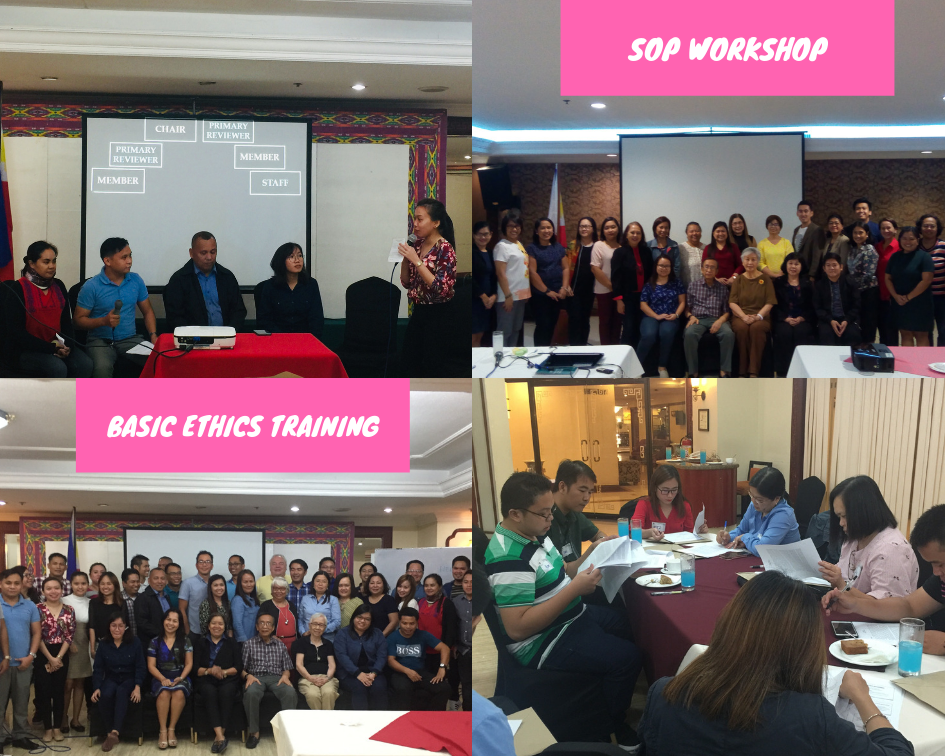
To prepare and guide the researchers for a good proposal, the Regional Health Research and Development Consortium XI (RHRDC XI) facilitated a two-day simultaneous ethics training namely: Basic Research Ethics Training and Standard Operating Procedures (SOP) Workshop on July 1 to 2, 2019 at the Grand Regal Hotel, Davao City.
The Basic Research Ethics Training (BRET) aims to introduce the basic principles of protecting human participants. There were 42 attendees from various RHRDC XI member institutions who actively participated during the training. The trainers for BRET are Dr. Angeles T. Alora and Dr. Angelica Francisco from the Philippine Health Research Ethics Board (PHREB). The training consists of lectures, group work activities and the most exciting role-playing of the participants.
Meanwhile, the SOP writeshop intends to help develop a Standard Operating Procedures Manual for existing Research Ethics Committees (REC) and improve the quality and consistency in the operational activity of the institutions which will serve as guide in the review process of the proposals. There were 10 member institutions who attended the workshop and these institutions have their intent in applying for PHREB accreditation after thorough polishing of their draft SOPs. The trainers for the SOP workshop were Dr. Marita VT. Reyes and Dr. Josephine Lumitao of PHREB.
While the primary purpose of research is to generate new knowledge, the goal is also to protect the rights and interests of the participants. Protecting humans is naturally a universal knowledge. Hence, majority of our laws are for the protection of rights, safety and welfare of individuals.
Davao Region has been one of the most active regions in crafting and implementing good researches for the benefit of the Mindanaoans. In crafting good research, it must be both scientific and ethical.
True enough that a research participant must be safeguarded as what Jean Bernard stated: “Experimenting on human beings is morally necessary and necessarily immoral”.
